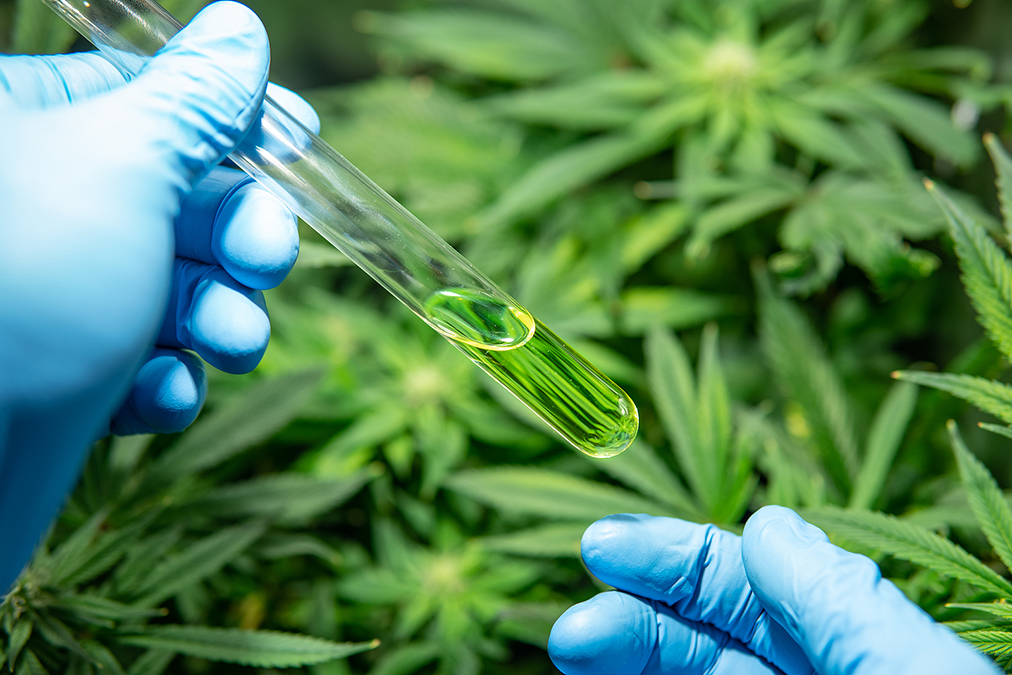 If the results of a new study published in the Journal of Affective Disorders are to be believed, one form of anxiety can be significantly reduced—if not completely healed—by using this natural ingredient.
If the results of a new study published in the Journal of Affective Disorders are to be believed, one form of anxiety can be significantly reduced—if not completely healed—by using this natural ingredient.
The problem is that this ingredient is illegal in most of the world.
The authors of this study have previously worked with a Canadian app called Strainprint to collect user-provided data on cannabis and its effects, with the users remaining anonymous, of course.
Strainprint allows cannabis users to record the details of every single one of their cannabis use sessions: the strain of cannabis they used, the THC and CBD levels in the cannabis they used, the methods they used to ingest it, the doses they ingested, the condition for which they used it, and the effects of each session.
This enables people to try it for various medical conditions and to keep records of how it works out for them.
This research team has previously published studies on the relationship between cannabis and anxiety and decided they would study its effects on obsessive-compulsive disorder (OCD) next.
OCD is an anxiety disorder that involves intrusive thoughts, compulsive actions, and anxiety.
In this study, the researchers wanted to find out whether cannabis reduced OCD symptoms and for how long the effects lasted.
They found 87 people on Strainprint who considered themselves to have OCD and were self-medicating with cannabis. These subjects had tracked their symptoms before and after 1,810 cannabis use sessions over a period of 31 months.
On average, they reported that their compulsions decreased by 60%, their intrusive thoughts decreased by 49%, and their anxiety decreased by 52% from before to after the cannabis use session. These effects lasted for four hours, after which the benefits diminished.
High doses of cannabis led to even larger decreases, especially for compulsions, and so did strains of cannabis with high concentrations of CBD (cannabidiol).
The reduction in intrusive thoughts decreased slightly with time, showing that the subjects developed a slight tolerance to the cannabis, although the effects remained remarkably consistent over the 31 months.
The weaknesses of the study were that the researchers could not compare the cannabis with a placebo or fake treatment and thereby ensure that the effects were real rather than imagined, or even verify that the subjects really had OCD to begin with.

 Multiple Sclerosis
Multiple Sclerosis Banishing Bronchitis
Banishing Bronchitis Gum Disease Gone
Gum Disease Gone Overcoming Onychomycosis
Overcoming Onychomycosis Neuropathy No More
Neuropathy No More The Prostate Protocol
The Prostate Protocol Brain Booster
Brain Booster
 Ironbound
Ironbound
 Solution for Shingles
Solution for Shingles
 The Bone Density Solution
The Bone Density Solution
 The Ultimate Healing Protocol
The Ultimate Healing Protocol
 The Parkinson's Protocol
The Parkinson's Protocol
 The Chronic Kidney Disease Solution
The Chronic Kidney Disease Solution
 Overthrowing Anxiety
Overthrowing Anxiety The Fatty Liver Solution
The Fatty Liver Solution The Hypothyroidism Solution
The Hypothyroidism Solution
 The End of Gout
The End of Gout The Blood Pressure Program
The Blood Pressure Program
 The Oxigized Cholesterol Strategy
The Oxigized Cholesterol Strategy
 Stop Snoring And Sleep Apnea Program
Stop Snoring And Sleep Apnea Program
 The Arthritis Strategy
The Arthritis Strategy The Vertigo & Dizziness Program
The Vertigo & Dizziness Program The 3-Step Diabetes Strategy
The 3-Step Diabetes Strategy Hemorrhoids Healing Protocol
Hemorrhoids Healing Protocol The Erectile Dysfunction Master
The Erectile Dysfunction Master Weight Loss Breeze
Weight Loss Breeze The IBS Program
The IBS Program The Insomnia Program
The Insomnia Program The Migraine and Headache Program
The Migraine and Headache Program The Neck Pain Solution
The Neck Pain Solution The Menopause Solution
The Menopause Solution The Ejaculation Master
The Ejaculation Master The TMJ Solution
The TMJ Solution The Acid Reflux Solution
The Acid Reflux Solution The Fibromyalgia Solution
The Fibromyalgia Solution The Psoriasis Strategy
The Psoriasis Strategy